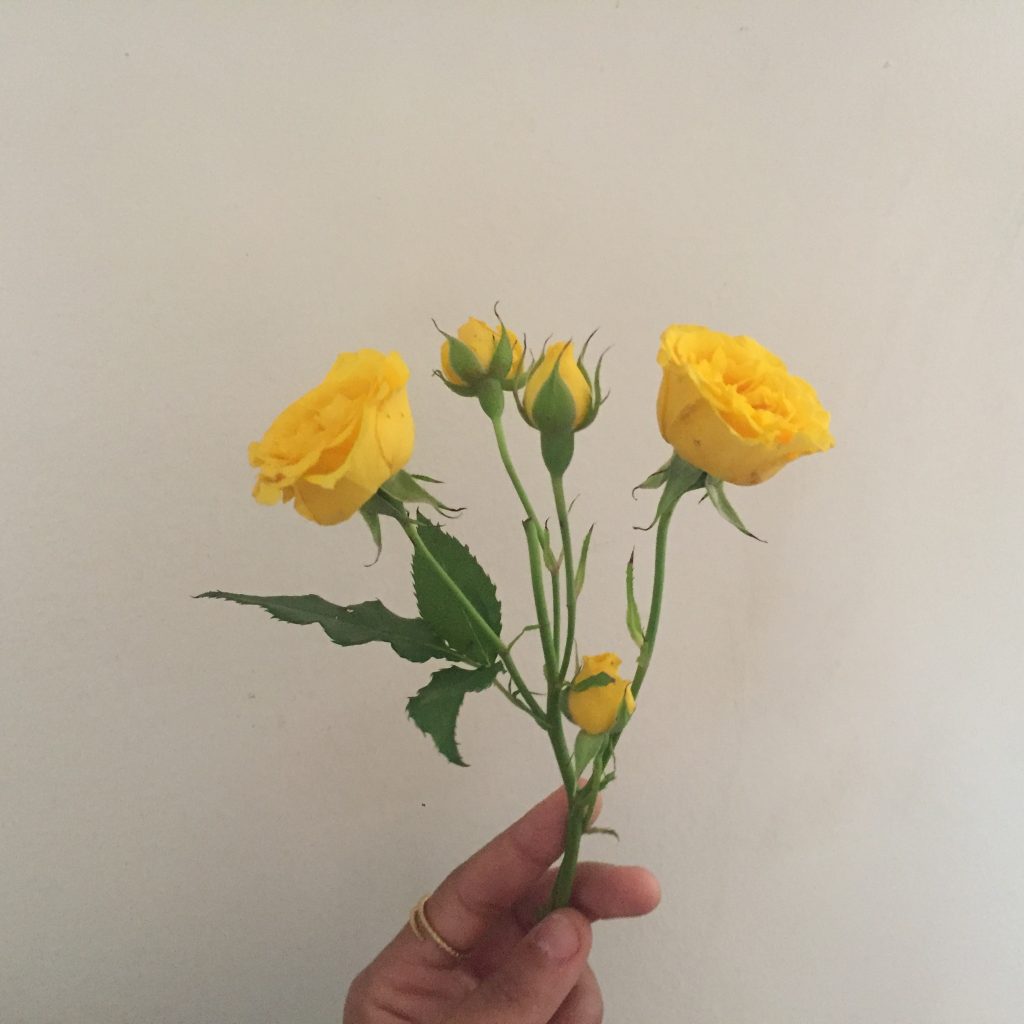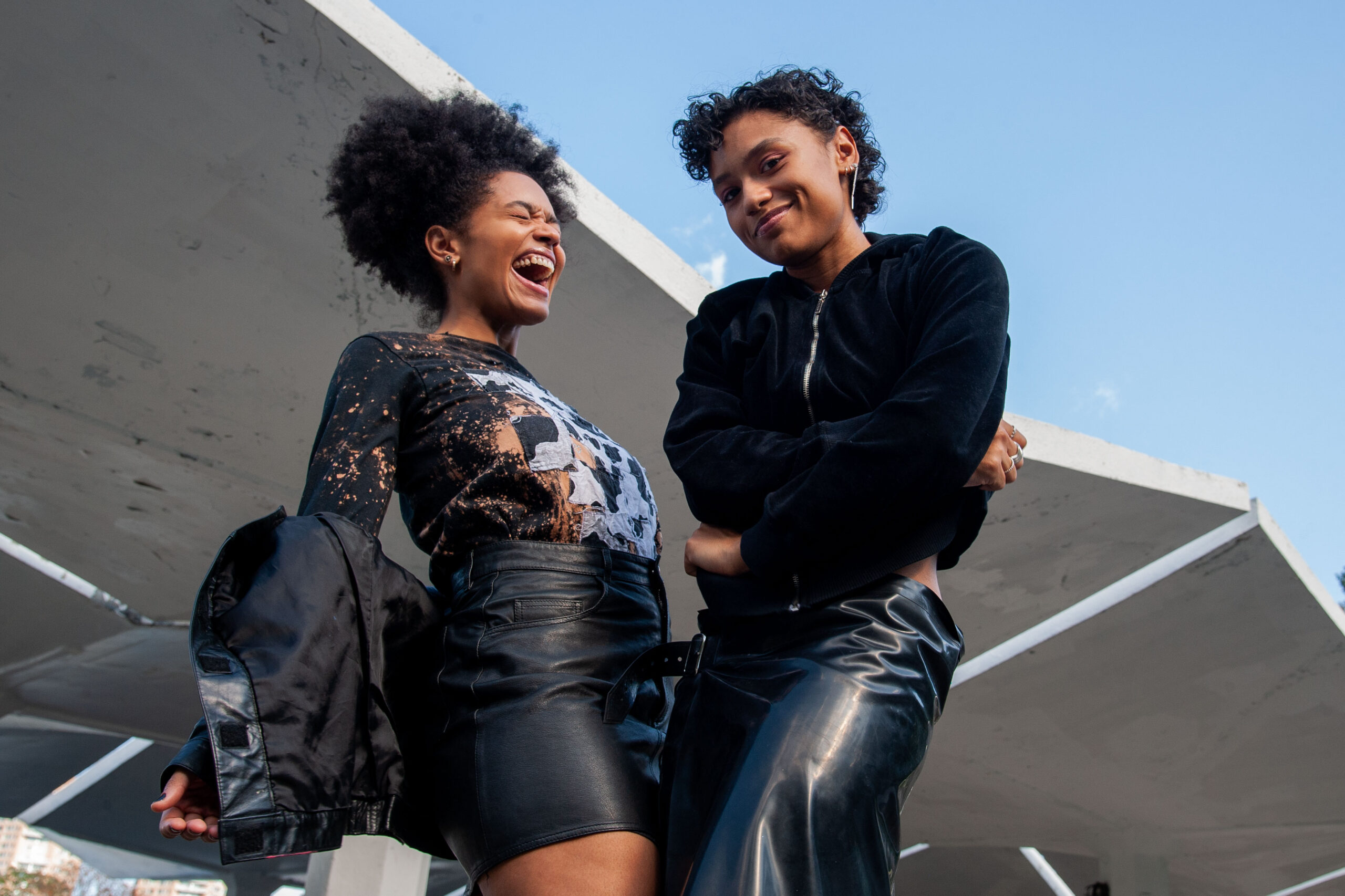Samantina Zénon is an actress and lifestyle influencer, as well as a talk show host on The African Millennials. We met on a rare night out, and I was immediately drawn to her fierce energy, genuine spirit, and critical mind. A few weeks later, over my morning coffee, I shared a phone call with her where we discussed everything from therapy to immigration.
Can you tell me about your identity?
Samantina: I was born in Haiti, so that’s my culture. I lived there until I was 12, so I grew up with rituals and cultural practices we do in Haiti. I definitely identify myself as Haitian because that’s what I am; I am also a woman, I love being a feminine person.
At the same time, as much as we love being women, it can bring its challenges. Right?
Samantina: I tend to clash with men who think, “Well, I’m a man, whatever I say goes.” I’m like, “No sweetie, we are living in a different society now, you can’t tell me what to do.” I’m all about action. If I say I’m going to do something, I’m going to do it. If I’m involved in something, it’s because I know I’m capable and I can find the resources I need to get it done.
So, it seems like a big part of your identity is your gender and being Haitian, but also being a millennial and a person who sticks to your word.
Samantina: Exactly. Mentally, I think like an entrepreneur. I’m constantly planning the next move. I can’t sit here and procrastinate or dwell on something and not do anything about it. I’m constantly asking, “How am I helping myself and my future?”
How was it moving to a different country when you were 12, which is a pretty tough age? How do you think you’ve melded into American culture, and how do you think you haven’t?
Samantina: When I first came here it was terrible. I was bullied so much. The way organizations like UNICEF and Red Cross portray us, they make it seem like everybody in my country is poor and malnourished. Which is all lies.
What do these organizations get out of exploiting people from countries like yours?
Samantina: They’re getting money, mainly. They’re always asking for donations when they play these videos. When I came here and saw them, I thought, “I can’t believe this is what they’re showing about my country!”
When did things change?
Samantina: My last year in high school, I changed my mindset to “Okay, well I’m just gonna do whatever I want.” I started learning about fashion. I’d get subscriptions to magazines to get inspiration. I worked at the mall and would spend all my money there, buying clothes. Fashion was something that helped me cope.
Near the end of college, I started going to therapy. After graduating, I decided to continue going, and went for three years. I’m glad I did because it helped me own up to who I was, who I wanted to be, and what I wanted to create for myself. I realized I wasn’t interested in fitting in.
Can you talk more about the process?
Samantina: It was life-changing, because we really dug into my childhood, and how I was raised. I realized that a lot of what I was experiencing actually related to what I had experienced as a child. I remember thinking, “I can’t believe I’m going through all of this subconsciously.” It really opened my eyes, I’m definitely more conscious, and I get to choose the kind of person I want to be.
I know therapy isn’t always easy. Were there any difficult periods?
Samantina: The first year was the hardest because that’s when we were figuring out why things were happening for me the way they were. Afterward, I would cry thinking, “Oh my god, I can’t believe all that I’ve gone through to get here.”
Everything I went through as a child still affects me as an adult, and that’s just how it is, for all of us, whether we want to believe it or not.
It seems like the power of talking things through is important to you.
Samantina: It is, and that’s one of the reasons why I wanted to be on a talk show. I’m no longer interested in sweeping things under the rug, because that does not help us grow as humans. When I have open discussions with others about ideas that make me uncomfortable, it opens my mind and gives me the opportunity to see things from a different perspective. We all think differently, and that’s the beauty of having debates with others. Yes, things can get heated when we are passionate about our beliefs, but we can always learn something new. It’s because I’ve allowed myself to be in these uncomfortable situations, that I am who I am.
Like I said, when I was going to therapy, I was hurt and I was uncomfortable—and I grew as a person.

